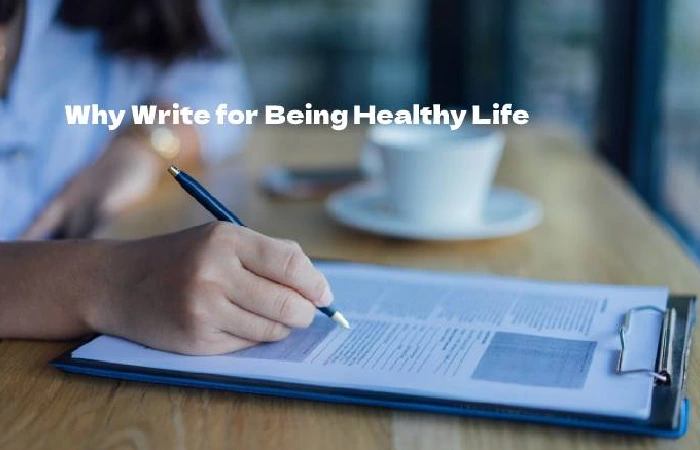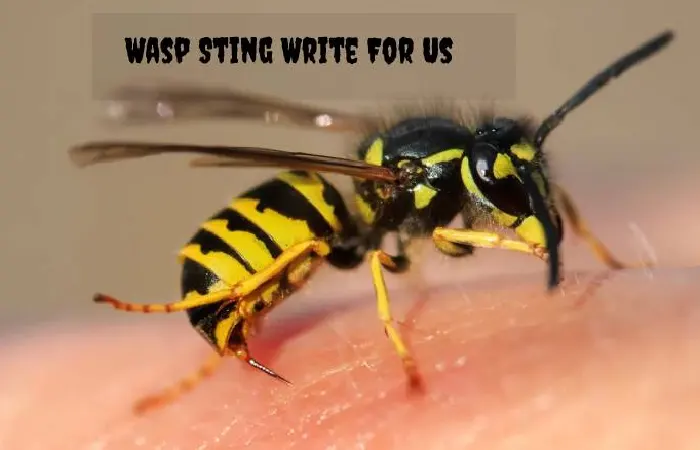Wasp Sting Write For Us
Wasp Sting Write For Us- A wasp sting occurs when a wasp injects venom through its stinger into your skin. The stinger is a modified egg-laying tube in female wasps that delivers a painful poison.
Where Do Wasps Sting?
- Wasps sting any exposed skin area, especially on the arms, face, or neck. They are more likely to sting if they feel threatened or trapped near the skin.
- The initial sting will cause a sharp pain that quickly intensifying into a burning sensation. Redness, swelling, and itching are common reactions at the sting site. The area may throb or ache for a few hours.
- In rare cases, a wasp sting can trigger an allergic reaction that causes dizziness or trouble breathing. Seek medical help immediately if symptoms worsen or persist. An epinephrine shot may be required.
- To reduce pain from a wasp sting, apply a cold compress, take an oral antihistamine, and use hydrocortisone cream. Pain relievers can also help. The swelling and pain should subside in a couple of days.
- Wasp stings are unpleasant but try not to aggravate the wasp. Remain as still as possible, then move away slowly from the area. Take precautions to avoid wasp nests, and do not swat at wasps, as this may provoke an attack. With treatment, the discomfort from a wasp sting will pass.
Signs and Symptoms of a Wasp Sting
- Pain and swelling around the sting site. The area may become warm and tender to the touch.
- Itching and irritation. The urge to scratch the sting can be intense. Resist scratching, as this may increase swelling and irritation, hives, rash, or swelling elsewhere. You may experience an allergic reaction that causes the swelling and irritation to spread. Seek medical help immediately if swelling affects your throat, breathing, nausea, vomiting, or diarrhea. An allergic reaction can also lead to gastrointestinal issues. Again, seek emergency care right away.
- Dizziness or confusion. A wasp’s venom contains toxins that may make you lightheaded or dizzy.
When To See A Doctor
If symptoms worsen or last more than a few hours, you may need an epinephrine shot, steroids, or other medication. While wasp stings are rarely deadly to humans, multiple stings or allergic reactions can become an emergency. Don’t hesitate to call 911 or go to an emergency room if you experience signs of anaphylaxis like trouble breathing, dizziness, or throat swelling.
Better safe than sorry – get medical help immediately if a wasp sting causes anything more than minor annoyance. Your health and safety should be the top priority here. With proper treatment, wasp stings can be managed and healed.
Treating a Wasp Sting at Home
If you’ve been stung by a wasp, don’t panic—most stings can be treated at home. Here are some steps to relieve discomfort and reduce swelling:
- Apply a cold compress
- Take an oral antihistamine
- Apply a cortisone cream
- Keep the area clean
- Elevate and rest
When to Search Medical Attention for a Wasp Sting
If you experience allergic reaction symptoms after a wasp sting, seek medical help immediately.
- Swelling of the throat, lips, or face
- Dizziness or fainting
- Rapid, weak pulse
- Nausea or vomiting
Anaphylactic shock is a life-threatening allergic reaction, so call 911 right away. Epinephrine, such as an EpiPen, should be administered immediately. It would help if you also went to an emergency room for observation and additional treatment.
Even if you do not experience a severe reaction initially, see a doctor if signs of infection develop, including:
- Increased pain, swelling, or pus at the sting site
- Swollen lymph nodes
- Fever or chills
How to Avoid Getting Stung by Wasps
The best way to avoid getting stung by wasps is to steer clear of them whenever possible.
- Avoid heavily scented perfumes or lotions
- Don’t swat at wasps
- Check for wasp nests
- Wear light-colored clothing
- Cover food and drinks
How to Update Your Articles?
To submit guest posts, please study through the guidelines mentioned below. You can contact us finished the website contact form or at contact@beinghealthylife.com.
Why Write for Being Healthy Life– Wasp Sting Write For Us

If you write to us, your business is targeted, and the consumer can read your article; you can have huge exposure.
This will help in building relationships with your beleaguered audience.
If you write for us, the obvious of your brand and contain worldly.
Our presence is also on social media, and we share your article on social channels.
You container link back to your website in the article, which stocks SEO value with your website.
Search Terms Related to Wasp Sting Write For Us
- wasp sting treatment
- wasp sting symptoms
- wasp sting allergic reaction
- how to remove a wasp stinger
- how to prevent wasp stings
- what to do for a wasp sting
- wasp sting pain
- wasp sting swelling
- wasp sting redness
- wasp sting itching
- wasp sting rash
- wasp sting blisters
- wasp sting infection
- wasp sting anaphylaxis
- wasp sting death
- wasp sting home remedies
- wasp sting first aid
- wasp sting pictures
- wasp sting prevention tips
Search Terms for Write For Us
Wasp Sting Write for us
Guest Post Wasp Sting
Wasp Sting Contribute
Submit post Wasp Sting
Submit an article
Wasp Sting Become a guest blogger
Writers wanted Wasp Sting
Suggest a post Wasp Sting
Wasp Sting guest author
Guidelines of the Article – Wasp Sting Write For Us
The author cannot be republished their guest post content on any other website.
Your article or post should be unique, not copied or published anywhere on another website.
The author cannot be republished their guest post content on any other website.
You cannot add any affiliates code, advertisements, or referral links are not allowed to add into articles.
High-quality articles will be published, and poor-quality papers will be rejected.
An article must be more than 350 words.
You can send your article to contact@beinghealthylife.com.
Related Pages
Sacral Chakra Write For Us
Ruminating Write For Us
Raspberry Leaf Tea Write For Us
Rosemary Oil Write For Us
Rainbow Baby Write For Us
Pure CBD Oil Write For Us
Protein Snacks Write For Us
Pineapple Write For Us
Muscovado Sugar Write For Us
Microgreens Write For Us
MCT Oil Write For Us
Magnesium Glycinate Write For Us
Maca Root Write For Us
Low Carb Vegetables Write For Us
Low-Calorie Foods Write For Us
Lethargic Write For Us
Kundalini Write For Us
Konjac Write For Us
Kombucha Write For Us
Kefir Write For Us

